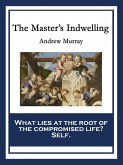In "The Bondage of the Will," Martin Luther engages in a profound theological discourse that addresses the complexities of human will and divine grace. Written as a direct response to Erasmus' "On Free Will," Luther employs a rigorous academic style, utilizing biblical exegesis and logical reasoning to argue that the will is bound by sin and cannot achieve salvation without the intervention of God's grace. The text situates itself within the burgeoning Reformation movement, challenging the prevailing scholastic orthodoxy and showcasing the tensions between free will and predestination that marked 16th-century religious thought. Martin Luther, a seminal figure in Christian history, emerged from a background steeped in theological rigor and existential inquiry. His own struggles with guilt, sin, and the pursuit of salvation forged a deep conviction that defined his writings. "The Bondage of the Will" encapsulates Luther's revolutionary ideas, which not only redefined the relationship between humanity and divinity but also ignited debates that would shape Protestantism and Christianity as a whole. This seminal work is a must-read for anyone interested in theology, philosophy, or the history of the Reformation. Luther's compelling arguments and passionate rhetoric invite readers to scrutinize their own views on free will and divine sovereignty, making this text both relevant and transformative in today'Äôs theological discussions.
Dieser Download kann aus rechtlichen Gründen nur mit Rechnungsadresse in A, B, BG, CY, CZ, D, DK, EW, E, FIN, F, GR, H, IRL, I, LT, L, LR, M, NL, PL, P, R, S, SLO, SK ausgeliefert werden.









